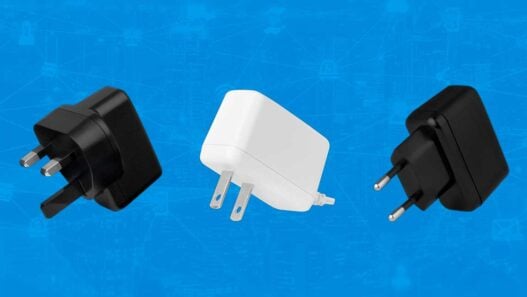Social care is currently in somewhat of a sorry situation, whether that be due to a lack of funding, a struggle to find workers, an increase in those who require it, or the lasting impacts of the recent pandemic. However, we are hearing more about the implementation of AI in a variety of different sectors, so just how can this rapidly emerging technology be utilised to improve the current state of social care?
What’s going wrong?
So, what is going wrong with the health sector currently, and how is this affecting social care as a whole? For Tanna, there are “a couple of reasons” behind this decline in recent years. “Social care is still a ‘second citizen’ to the NHS in terms of awareness and impact and the reality is, let’s be frank, there’s been no reform,” says Tanna. “Then if you look at the NHS healthcare system, almost 60% of all costs are going into the ageing population.” This is something that feeds directly into the social care sector. Once this overburdening is paired with the general lack of awareness and reform, it’s a recipe for disaster.
Refining the social care sector can not only help prepare it for the inevitable rise of a continually ageing population but also allow it to carry some of the burden faced by an already pressured NHS service.
The reality is that “social care is privately led, and these are the ones who are willing to be innovative, disruptive, thinking about efficiency and of course profitability,” explains Tanna.
How AI can help
“There are a couple of areas we think about when it comes to AI [in social care],” explains Tanna. “I guess the ‘less sexy’ one is all about efficiency in the system. We need to be able to find people, train these people, ensure they’re going to the right visits at the right times, this sort of thing.” This is the reality of implementing AI into social care for the most part, not an overhaul – just an augmentation.
“It’s of course not a pure AI problem,” explains Tanna. “But it’s these ‘back office’ problems which are the ones where AI can be best implemented”. Through utilising AI in this approach other benefits are reaped such as better continuity with patients, which results in a system that is not only more efficient but also provides a better quality of care.
The second part is all about using AI to streamline typically manual or mundane processes. Tasks like report filing, agency spot checks and reporting, or data synthesising can all be streamlined for efficiency, freeing up workers for more time in actual care positions. This area is something that Tanna touts as “a real opportunity for AI to support the system.”
Concerns over morality
Whenever the notion of implementing AI or robotics into healthcare crops up, so do the concerns over morality and maintaining humanity within the sector – so what gives?
It should be made clear, and is something that Tanna emphasised, that just because AI might see growing use in social care, that does not mean it will be directly replacing humans in the role. “At the end of the day, care is about looking after a person, and fundamentally that is on a human-to-human level – that’s never going to change,” he says.
“It’s really all about just augmenting humans, and not replacing them.” For Tanna and his team, it’s all about identifying areas which can be augmented by AI to improve efficiency, job quality, and quality of care for the patient. “You still need humans to support humans, and what we’re really trying to do is get that human to do that duty in the most valuable way possible.”
Beyond just keeping the human touch alive in social care, Tanna also made clear that they, at every step of the way, “have controls in place” to ensure that “sensitive, personal data around very vulnerable adults and beyond is secure, safe, and constantly thought about.” In fact, Tanna believes that, given the often paper-filed nature of the healthcare sector’s documentation processes, they “have an opportunity through technology to improve risk controls” in the sector as a whole.
Why AI in social care will only augment and not replace
“One of the biggest problems in the sector is loneliness, so keeping that human-on-human approach is key,” urges Tanna. It’s never going to be about replacing that factor in social care, only augmenting it to make it better for both the patient and carer alike.
Tanna also believes that by improving the quality of work for the carer, it will allow care workers to spend more time doing what they came into the industry to do, caring for those who need it most.
What birdie is aiming to achieve
birdie is a personalised home healthcare technology which helps businesses that deliver care in home. “birdie aims to support you in delivering and monitoring care, through to making sure staff rosters are efficient, or making sure your billing and invoicing has happened correctly,” explained Tanna. “It’s all integrated into a single system in which we provide partnerships and support.”
Ultimately, through streamlining care systems, birdie strives to provide a service with “the ultimate vision of better patient experiences.”













